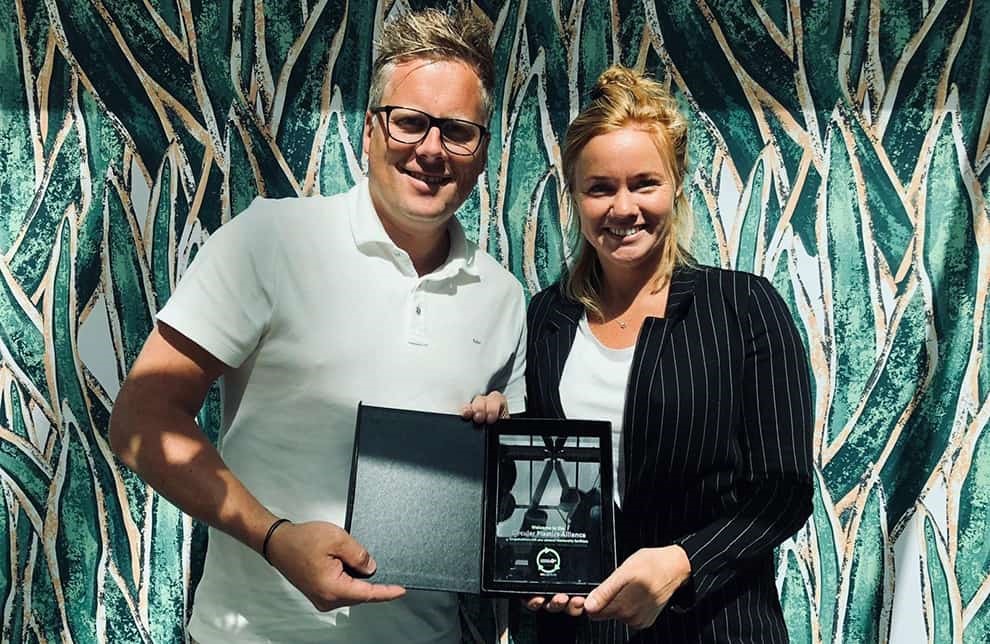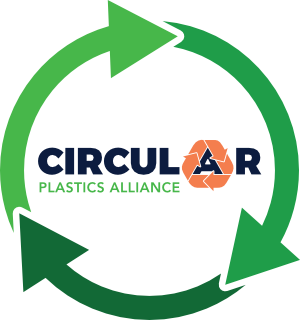
Joining forces for smarter, more sustainable cargo
More than 35% of the import cargo at Amsterdam Airport Schiphol are flowers. And this delicate cargo needs special protection and efficient shipping. Roos Bakker, Director of Business Development for cargo, explains why Schiphol is committed to developing the right solutions for importers, and sustainable solutions for the planet. And how the Circular Alliance is helping do both.
One size fits all
In addition to coming in all shapes and sizes, flowers maintain their freshness in specific conditions. When they’re shipped overseas, this can mean missed opportunities. ‘Because of the different shapes and sizes of flower boxes, freight planes can only fill to about half of their full capacity,’ Roos explains. ‘This means double the flights than necessary to ship cargo.’ In addition, the boxes are prone to condensation, and are only used once.
The Circular Alliance has found a better way to ship all cargo. By standardising box sizes and making them from recycled plastics, the Alliance has set an ambitious goal: reduce product importers’ carbon footprint by 25%, and also increase their profitability by 25% at the same time. Simply put: ‘standard boxes create more space in each freighter, which means fewer freighters have to fly,’ says Roos. What’s more, the boxes and pallets last for five to seven years, and can then be recycled to create new boxes and pallets for another five years of usage, thereby reducing waste.
Since sustainability is a top priority at Schiphol, it joined the Alliance when it was founded earlier this year. ‘Schiphol is dedicated to more sustainable aviation,’ Roos says, ‘and joining the Alliance is just one more way we’re making a hands-on contribution to the effort.’
Answering the call
The Alliance was built out of a direct need in the industry for more circular logistics processes. Major players in logistics, (perishable) goods import/export and plastic recycling came together to develop an effective solution. ‘Alliance members are contributing expertise and funding to find the best way to help cargo partners meet their financial and sustainability goals,’ Roos says. ‘The Alliance has proven that collaboration is key to success in the cargo industry.’
Within just a few months, the Alliance has developed a prototype flower box that is strong, durable and resistant to condensation. The flowers are more protected, and less likely to wilt, thus improving the quality of the final product. And – best of all – the boxes are stackable to better utilise available cargo space.
The Alliance even saw an opportunity to help Kenya go greener. ‘Plastic is a big problem in Kenya,’ Roos explains. ‘So the Alliance has established its manufacturing process there, recycling “local” plastic to make the boxes. Just one more way we’re helping make the entire chain more sustainable.’
The challenge of change
Now that a viable, sustainable option for boxes is available, Roos explains that the real challenge begins. ‘We have a great solution, but growers, handlers and airlines must embrace it,’ she says. ‘In the past, it has often proven challenging to get an entire chain to adopt a new way of working. And since the whole chain has to cooperate in order to make it a success, we’re entering into some very exciting times.’ Plans to visit growers in Kenya to promote the new boxes has been put on hold because of the coronavirus, but Roos says she is eager to pick up the initiative again when it’s possible.
And of course, adopting the new boxes isn’t limited to the flower industry alone. ‘The new designs will truly be successful when other sectors – like the fashion industry or product manufacturers in China – recognise the benefits of the boxes and adopt them as well. Large-scale use of sustainable packaging will be a measure of success.’
Ready to branch out
Recycled plastic pallets also offer benefits over their wooden counterparts. They are stronger, last longer, and do not absorb water. ‘Wet wooden pallets add unnecessary weight to the total freight,’ Roos explains, ‘so using plastic ones also means more cargo can fit on the plane. And they’re reusable for years, so the reduction in waste is very significant.’
The Alliance’s production lab in Munich is ready to begin prototyping boxes and pallets in any shape, size or strength, Roos says. She encourages interested cargo partners to get in touch. ‘We can just as easily create a box to ship bowling balls as we did to ship flowers. The goal is to offer opportunities to the entire cargo industry to make the whole chain more efficient, more sustainable and more connected.’
The time is now
In the fast-paced, competitive world of cargo, partners often don’t have time to think about sustainability. And this year, the coronavirus pandemic is making cost-cutting a top priority. Roos says the Alliance recognises these challenges, and encourages cargo partners to see the potential.
‘Recycled plastic boxes and pallets actually save so much,’ she says. ‘From fuller planes to lighter pallets, and from material costs to handling costs, it’s actually financially beneficial to invest in a more sustainable solution.’
Want to know how the Circular Alliance can help you cut costs and increase sustainability in your cargo shipments? Contact us today to find out.
Press release published by Schiphol Cargo. Click here for more information about Schiphol Cargo and the pres-release.

Haven 45
1131 EP Volendam